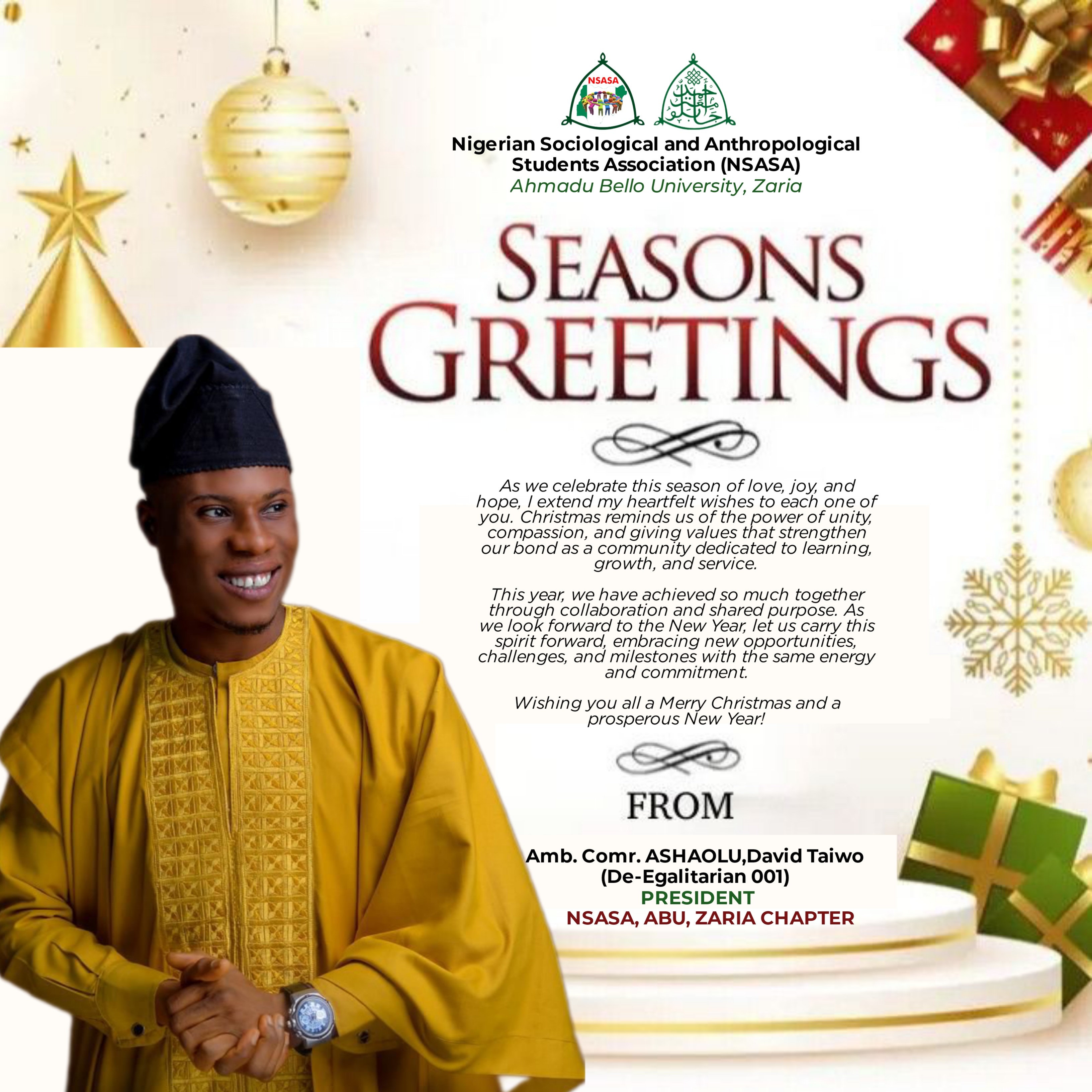Article of Faith
A Sociological Disquisition on Christmas: Its Significance and Sociological Relation -By David Taiwo Ashaolu
From a functionalist purview, Christmas also operates as a vehicle for social regulation and integration. By perpetuating traditions that extol virtues such as charity, reconciliation, and neighbourly love, it engenders a collective ethos that mitigates societal fragmentation. The Christian precept, “Love your neighbour as yourself” (Mark 12:31), finds tangible expression in the acts of giving and communal care that define the season, underscoring Christmas as a pivotal moment for societal unification and moral rejuvenation.

In the context of sociological inquiry, Christmas represents a quintessential ritual that encapsulates the dual essence of religion and social cohesion. Drawing from Durkheim’s seminal work, The Elementary Forms of Religious Life, I posit that Christmas, while rooted in Christian theology, transcends its doctrinal origins to serve as a cultural mechanism fostering collective solidarity and moral instruction. Its societal import lies not merely in its religious observances but in its ability to cultivate shared values, communal identity, and emotional synergy within heterogeneous social systems.
Durkheim articulates that the sacred, distinct from the profane, comprises phenomena venerated by collective consensus. Within this framework, Christmas assumes the mantle of a contemporary sacred ritual, where the symbolic practices of gift-giving, communal worship, and festive gatherings epitomise the convergence of the sacred and the social. The biblical exhortation, “It is more blessed to give than to receive” (Acts 20:35), underscores the altruistic ethos embedded in the celebration, reinforcing societal norms of generosity and magnanimity. This convergence of religious narrative and social praxis highlights Christmas as a locus of moral reinforcement and societal renewal.
Religion, as elucidated in Durkheim’s oeuvre, functions as an integrative force, uniting individuals through shared beliefs and collective practices. Christmas exemplifies this function by serving as a ritualistic occasion for the enactment of collective effervescence, a state wherein individuals transcend quotidian isolation through shared emotional intensities. Whether through the solemnity of liturgical observances, the conviviality of familial gatherings, or the exuberance of carolling, the Christmas season manifests as a period of heightened social interconnectedness, reaffirming the cohesion of the social body.
Moreover, the moral didacticism inherent in Christmas rituals aligns with the sociological perspective that religion inculcates ethical principles necessary for societal perpetuation. The narrative of Christ’s nativity, with its emphasis on humility, redemption, and divine love, resonates profoundly with the biblical assertion, “And you shall call His name Jesus, for He will save His people from their sins” (Matthew 1:21). These teachings transcend ecclesiastical confines, embedding themselves in the moral consciousness of both adherents and secular participants, thus fulfilling religion’s function of moral socialisation.
From a functionalist purview, Christmas also operates as a vehicle for social regulation and integration. By perpetuating traditions that extol virtues such as charity, reconciliation, and neighbourly love, it engenders a collective ethos that mitigates societal fragmentation. The Christian precept, “Love your neighbour as yourself” (Mark 12:31), finds tangible expression in the acts of giving and communal care that define the season, underscoring Christmas as a pivotal moment for societal unification and moral rejuvenation.
In summation, the sociological relevance of Christmas lies in its dual role as a religious observance and a societal integrator. It constitutes a ritualistic enactment of shared values, a medium for moral education, and a catalyst for social cohesion. Through the Durkheimian lens, Christmas is not merely a celebration of theological significance but a vital socio-cultural phenomenon that underscores the enduring power of collective rituals in sustaining the moral and structural integrity of human societies.
Merry Christmas 










